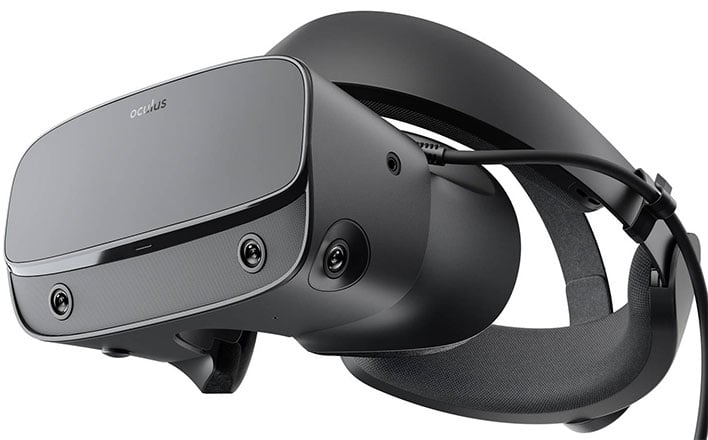Oculus Rift S Is Virtually Dead As Facebook Ends Production In Favor Of Oculus Quest

It was a solid two-year run for the Oculus Rift S, which helped make VR gaming on PC a little more affordable (the headset launched at $399). These days, however, Facebook is far more interested in its wireless Oculus Quest 2 headset to serve the mainstream VR segment, and has ended production of the Rift S.
Facebook may have come to the conclusion that it can consolidate its VR hardware portfolio, as there is no other Rift headset in the works that we are aware of. On the surface, that might sound like disappointing news for gamers who want to play on PC. But one thing that is neat about the Quest 2 is that even though it is a standalone headset, it can also optionally be plugged into a PC to play Rift games.
As such, the Rift S becomes a bit redundant. Faceook told UploadVR that while there is some lingering inventory among retailers, it is not planning to produce more Rift S headsets. "Generally speaking, as channels sell out of stock, they won’t be replenished moving forward," Facebook said, adding that it had previously planned to stop selling the Rift S in 2021.
Indeed, a look around the web shows that the Rift S is pretty much gone, unless you want to take a flyer on a marketplace seller.
Should you lament its retirement? Well, it's a bit of a bummer that Facebook is not focused on a mainstream solution aimed squarely at PC users. That said, the Quest 2 can still fill that role, and has some advantages. One of them is being wireless (unless you tether it to a PC, of course). It also offers a higher resolution (1832x1920 per eye versus 1440x1280) and a higher refresh rate (90Hz versus 80Hz).
Like the Rift S, the Quest 2 leverages inside-out tracking (no base stations required), and sports 6 degrees of freedom (6DoF) tracking. It also uses similar Touch controllers, and has a cheaper cost of entry—$299 for the 64GB model.
The downside is that Facebook requires linking the Quest 2 to a Facebook account. For some, that is a deal killer, especially when the company's track record with user privacy is not exactly spotless.

